What are real foods? Eating real foods means actually eating more whole foods or foods free from chemicals and unprocessed. Why does it matter? In this blog, I will not only answer those questions but also uncover some of the major causes of our increase in chronic illness.
Also, find out a bit about: whether organic food matters, Are GMO’s safe, the dangers of sugar, how much sugar is okay, what carbs are dangerous and good for you, whether whole grains are healthy, the truth about milk, choosing healthier dairy and choosing healthier meats.
80-90% of People Don’t Eat Enough Real Foods
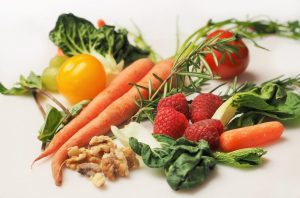 I would say 80-90% of people don’t eat enough real food for the growing chronic illness problem! The standard American diet is super unhealthy.
I would say 80-90% of people don’t eat enough real food for the growing chronic illness problem! The standard American diet is super unhealthy.
Many people might think that eating healthy is making lots of home-cooked meals and avoiding fast-food restaurants. Also, incorporating lots of vegetables into our diets, and eating very few sweets, chips, and other junk. Some people understand avoiding processed foods is essential. Many also know regular exercise is essential to good health. This was my health perspective for a very long time. I was also avoiding high fructose corn syrup, MSG, and hydrogenated stuff. This is a good start. But, might not be enough with 40-45% of people with at least one chronic health condition.
We need to be looking at hidden sugars, foods with GMO’s, choose vegetables and fruits that are not caked in pesticides, and more!
Even if you are not overweight or obese, it doesn’t mean your necessarily healthy or not at risk of becoming chronically sick. I’ve seen many people who are super fit and in excellent shape become chronically sick. View my blog on why Perfect Weight Doesn’t = Healthy
A Yearly Physical Won’t Prevent You From Becoming Chronically Sick
The medical doctor might tell you that you are perfectly healthy, but their examinations are not adequate. Their tests are limited, they don’t provide anywhere close to an accurate picture of how healthy you really are. For example, they don’t examine how stressed you might be or how much toxins are building up in your body. They don’t account for migraines, anxiety, how well organs are functioning, and problems developing within your cells. If they do help with something like anxiety, they just prescribe medication that just masks the problem (symptoms) instead of fixing it. However, their physical examinations are still necessary, they do have some tests that are relevant and important.
Sadly, most people can’t just change their diet after they become chronically sick and see a quick recovery. Some it takes years, and most people can’t recover from a health issue by changing their diet alone. I wish it was that easy!
It Is Not Our Fault
It is not our fault for not knowing how to truly eat a healthy diet. We have been deceived by marketing campaigns, food manufacturers, the government, and so on… The information across the internet on how to eat a healthy diet is confusing at best! People have so many questions and no time to dig deep to find the answers. It is hard to know what sites to trust, or who knows best.
My Knowledge
I have been learning from natural practitioners and nutritionists who have worked with people on reversing chronic health conditions that medical doctors have had no answers for. I consult with an Ayurvedic doctor too. Additionally, I’ve been doing marketing, research, and content writing for wellness businesses for over 7 years. So I know how to navigate through the information out there, and what sources to trust for some of the more pertinent information. But no guarantees that it is all 100% accurate, or that every site is trustworthy.
Some of it just logically makes sense and it’s just common sense. I have also learned a lot from just my own chronic illness struggles, and my desire to fix and understand the reasons for each health issue I have faced. I can clear up a lot of confusion!
First, you need to understand…
We are Exposed to Way Too Many Toxins!
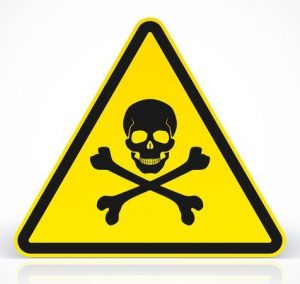
Babies today are born with over 200 -300 toxins in their bodies.
We live today in a sea of toxins. Each generation is born with more toxins in their body than prior generations. Babies today are born with over 200 -300 toxins in their bodies. The EWG (Environmental Working Group) did studies finding an average of over 200 environmental toxins in the umbilical cord blood of 10 newborn babies before they even started consuming breast milk. NOTE: just environmental, they didn’t test for all the other types of toxins. View this and other studies here. CNN also wrote an article on this: Toxic chemicals finding their way into the womb.
This isn’t something I just learned about online either, it has been a topic with the natural practitioners I’ve worked with. Very few people know about it, but everyone needs to know!
Therefore, it could be viewed as the younger the generation is, the higher the importance it is to eat healthier. Due to kids’ cravings for sugar and all the marketing for fun snacks, some eat worse than their parents. But, to reverse this chronic illness trend they need to eat super healthy now to reduce toxins so it doesn’t haunt them when they are older. Toxins continue to build up in the body over time.
The kids today have a higher chance of getting sick at an even younger age than millennials. Logically, their bodies are still developing so they need proper nutrition now. It is super important to eat healthy foods and reduce toxin exposures if planning to have a baby. It is super important for everyone because this percentage is only climbing. Half of people 45-64 have a chronic health condition (from ahrq.gov). But, from what I see almost half of millennials are already struggling with some ongoing health condition just in their 30s. Nearly 45% of our country struggles with a chronic health condition. Around 4-10 adults have multiple health conditions. We need to start reversing this trend!
Read about some of the worst food toxins in my blog: Reading and Decoding Food Labels & Toxic Ingredients.
These toxins we need to worry about are from more than just foods, but I will dive into that a bit later in a few future blog posts.
Understanding the History: Our Toxin Exposure has Dramatically Increased in the Last 100 Years!
The food we eat plays a huge role in whether we end up developing a chronic health condition later in life. People 100 years ago could just eat their vegetables, avoid fast-food restaurants, keep their sweet intake low, and the majority of people who were not overweight/obese didn’t develop a chronic health condition in their 30’s or even 50’s. Although, they could have eaten better back then to avoid chronic illness or to prevent sharing their toxin load with future generations. Unfortunately, there was no internet, and there wasn’t as many natural, alternative practitioners, or certified nutritionists out there to help (at least not that people knew about). But, most importantly, they weren’t exposed to as many toxins as we are today either.
Along with people being born with more toxins today, food today has become more processed, more toxin heavy, and there are more toxins in our environment and water supply than there ever was before.
Today vs. 100 years ago: today we have more sugar added into our foods, more unhealthy processed grains, GMOs, overconsumption of milk & other dairy products, livestock is being fed GMO grains instead of the food from the land, and much, much more.
The Sugar Industry Made Things Worse Around 1970
 The 1970s was one of the stepping stones for our country’s increase in toxins in our foods. The sugar industry tricked us for over 50 years. The sugar industry paid scientists (Harvard Researchers) in the 1960s to play down the link between sugar and heart disease. They made us believe that sugar wasn’t that bad, and fat is to blame for obesity, heart disease, and more.
The 1970s was one of the stepping stones for our country’s increase in toxins in our foods. The sugar industry tricked us for over 50 years. The sugar industry paid scientists (Harvard Researchers) in the 1960s to play down the link between sugar and heart disease. They made us believe that sugar wasn’t that bad, and fat is to blame for obesity, heart disease, and more.
To make matters even worse the food industry started adding a lot of unnecessary sugars into all of our foods in the 1970s. The worst sugar addition being high fructose corn syrup. Not to mention, the food marketers have done an amazing job of getting us interested in a lot of high sugar snacks. Additionally, creating many convincing lies about how healthy many foods are. Read more on the truth in my blog: The Bitter Truth About Sugar.
We Don’t Need Milk for Calcium and Strong Bones – One of the Biggest Marketing Myths
We don’t need to consume 3 glasses of milk a day like the nutritional guidelines still state. In fact, we don’t need to consume cow’s milk at all. We can get way more calcium from eating other foods such as leafy greens. Drinking 3 glasses a day, not only adds way too much sugar to our diet but can also cause a myriad of other health conditions. Not to mention, nearly 60% of people can’t even properly digest milk.
Find out why our nutritional guidelines lie about milk being essential to our diet, the myths behind milk, and how milk can actually be bad for you in my blog: The Truth About Milk – Why We Don’t Need it to Stay Healthy
TOXINS = INFLAMMATION = CHRONIC ILLNESS
Toxins accumulate in our bodies over time. An overload of toxins causes inflammation which is the root of most modern illnesses. Even the healthiest person you know has a build-up of chemicals, pesticides, metals, and other toxins in their bodies. So it is super important to reduce our toxin load by eating healthier!
“The food you eat can be either the safest and most powerful form of medicine or the slowest form of poison.” – Ann Wigmore
We are NOT getting Proper Vitamins and Nutrients
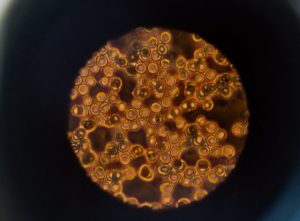 The majority of the population, likely 80% of people don’t consume enough vitamins and nutrients from the food they eat. We need certain vitamins and nutrients to stay healthy, to keep our immune systems strong, and to prevent us from developing a chronic health condition. View my blog on supplements here and how to get in more of the nutrients you need with superfoods on this blog: 11 Superfoods for a Diet Higher in Nutrients.
The majority of the population, likely 80% of people don’t consume enough vitamins and nutrients from the food they eat. We need certain vitamins and nutrients to stay healthy, to keep our immune systems strong, and to prevent us from developing a chronic health condition. View my blog on supplements here and how to get in more of the nutrients you need with superfoods on this blog: 11 Superfoods for a Diet Higher in Nutrients.
Eating healthy proteins, healthy fats, and a variety of vegetables is absolutely necessary, but also reducing our consumption of sugars, grains, and unhealthy fats. Read more on this here: Well Fed but Undernourished: An American Epidemic.
Eating the right food can actually help with improving the health of your cells and repairing them. The health of your cells determines how healthy you are. Eating the right foods can also help to detox toxins from the body.
Listen here to learn more about detoxing toxins and why toxins are a huge problem: https://totalhealthinc.libsyn.com/detox-tips
It’s Not Just Genetics – Genetics Plays a Small Role
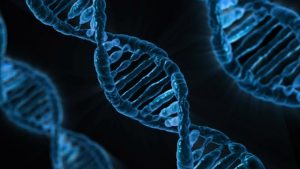
Lifestyle and diet greatly influence and can even be a determining factor in whether or not certain genes turn on.
Your diet plays a huge role in your health. It can be a major contributing factor to whether you get a cold or flu, struggle with fatigue, brain fog, have a mental health condition like anxiety, or develop some chronic health condition like an autoimmune disorder.
Diet plays a role in a person’s hormonal health, as well. Food can even be the reason for some people’s inability to get pregnant. I know someone who changed their diet to get pregnant, and it worked (not that it would for anyone, there could be other issues).
What you eat even determines the health of your skin both short-term and long-term. What you eat will play a role in how fast you age, and yup that’s right wrinkles and other skin issues.
Many people think when they get cancer or some other chronic illness it’s just bad luck or they blame genetics. But actually, lifestyle and diet greatly influence and can even be a determining factor in whether or not those genes turn on. This concept is called Epigenetics or Exposome. How we take care of our bodies plays a larger role than genetics. How we take care of our body (our exposure, what we put in) is 90% responsible for chronic health conditions, and genes are only 10% responsible according to Dr. Christopher Wild. More on that here: Why Genes Aren’t Your Destiny.
The Problem is that Bad!
I have talked to many natural health practitioners, nutritionists, an Ayurveda doctor, and have read many articles from holistic health experts, and they all agree that we have a HUGE toxin problem that is getting worse with each generation. Rightfully so, they are concerned. They also all agree that diet plays a huge role in the cause of many modern chronic illnesses.
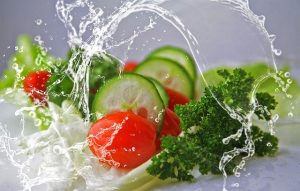 In order to avoid becoming part of the chronic health condition statistic or to protect our families, we have to make changes to our diet. I learned the truth about eating healthy the hard way by becoming part of the chronic pain statistic. But, there was no one there to fully guide me, or give me all the answers free of charge. I mean the health practitioners and nutritionists I worked with as a patient and as a marketer taught me a lot, but I had to do some research on my own, as well.
In order to avoid becoming part of the chronic health condition statistic or to protect our families, we have to make changes to our diet. I learned the truth about eating healthy the hard way by becoming part of the chronic pain statistic. But, there was no one there to fully guide me, or give me all the answers free of charge. I mean the health practitioners and nutritionists I worked with as a patient and as a marketer taught me a lot, but I had to do some research on my own, as well.
It wasn’t easy for me to discover how truly unhealthy our country is, and how so many of us have been deceived for years by marketing lies, and by believing our government was doing enough to help us. But, companies and the government are more concerned about profits than keeping us healthy or improving our health. I fought the truth, hoping that these changes in my life weren’t absolutely necessary, or that the health of our country really wasn’t that bad. But years of watching more people develop health conditions and lots of research has left me with the conclusion that our country is in big, big trouble.
People need to spread the word, we need people to get healthier, and help the youth so that the generation after the millennials won’t be too sick to work to take care of our country.
We Need to Fight Back!
We also need people to fight back against food companies that poison us, push for more government regulations, and would someone please encourage our restaurants to use healthier ingredients! These are not goals I’m taking on personally. I’ve chosen to spread the word, and I hope you will help to spread the word, as well. I can’t stand back and just watch my friends and family get sick, and let them wonder why this happened to them.
Chronic Illness is all around us.
It is easy to think…oh that won’t happen to me. I thought that too. But, the stats tell a different story. Nowadays, almost everyone knows someone 40 years or younger who has a chronic health condition or is facing a debilitating chronic health battle. When I tell someone new about my blog (just random strangers through networking even), they usually mention a chronic health condition they have or someone close to them. We might not even realize how many people around us are managing an ongoing health condition because some people don’t talk about it. A lot of times people think they are the only ones, or they don’t think people will understand, or they just don’t want the pity (it doesn’t help). I’ve felt that way too.
It is not our fault if we become chronically sick. We have all been misled for a very long time. However, we can do a lot to prevent chronic illnesses!
So, Where Do We Start?
What are Real Foods?
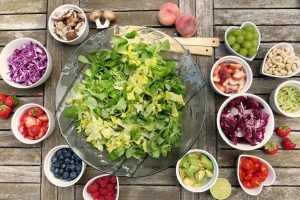 Eating real foods means actually eating whole foods. So you want to consume more: meat, fruit, vegetables, healthy fats, and nuts. Focus on foods that are just one ingredient. Over 1,000 years ago that’s what people ate. Our bodies have never really adjusted to eating all these packaged foods with the added chemicals.
Eating real foods means actually eating whole foods. So you want to consume more: meat, fruit, vegetables, healthy fats, and nuts. Focus on foods that are just one ingredient. Over 1,000 years ago that’s what people ate. Our bodies have never really adjusted to eating all these packaged foods with the added chemicals.
Most prepackaged food is junk, we need to be eating more whole foods and here are my 8 Tips on How to Eat Less Packaged Food (Less Junk Food).
Organic Food
Real food is also organic food. It is food that hasn’t been over-processed, not genetically modified, food that has fewer pesticides, and artificial ingredients, making it more natural. It is in some ways the “real foods” our great-great-grandparents used to eat. HOWEVER, organic junk food is still junk food. Also, eating organic doesn’t mean your food will be high in nutrients. The prepackaged food is typically not real food. That’s why eating whole foods is super important! I personally thought for a long time organic was some extra weird process that food goes through. Then, they artificially label it as healthier. This is actually hilarious because organic is the exact opposite!
Organic food has to meet certain standards to be labeled as organic. Farmers and businesses have to pass a review and inspection every year to maintain their certified organic label.
You have to change your perspective to not eating organic or more whole foods as pricy and luxury. Instead you need to look at why the processed, pesticide-ridden foods are so cheap.
How about food labeled natural? What are the qualifications for foods labeled as organic? Find out in my blog: Organic vs. Natural: What is the difference? and view When is Organic Really Worth it?
To eat more Real Food…We Need to Reduce our Sugar Consumption!
The Sugar Industry is Poisoning Us!
80-90% of Americans consume more than the recommended amount of daily sugar!
 If you are struggling with any physical health condition or mental health battle, sugar is likely a contributing factor, or even hindering the recovery process. It is also one of the primary causes of people developing ongoing health conditions. It is a factor in why some kids have too much energy, can’t go to sleep at night, don’t stay asleep, or have behavioral problems. But, other toxins or things might also play a role.
If you are struggling with any physical health condition or mental health battle, sugar is likely a contributing factor, or even hindering the recovery process. It is also one of the primary causes of people developing ongoing health conditions. It is a factor in why some kids have too much energy, can’t go to sleep at night, don’t stay asleep, or have behavioral problems. But, other toxins or things might also play a role.
Find out more about the dangers of sugar on my blog post: how sugar is one of our biggest enemies.
Unless you only rarely ever buy anything prepackaged or check the labels on basically everything you buy and know roughly how much sugar you consume a day – you are likely over-consuming sugar!
Many people think that the sugar they eat is just in the sweet treats they buy. But, sugar is added to almost everything prepackaged. Foods that are said to be super healthy like granola bars, foods labeled as natural, and even organic snacks can have loads of sugar!
I used to think I was doing an excellent job because I was avoiding eating anything with high-fructose corn syrup, an artificial sugar that is really bad for you. Then, I later improved by avoiding cereal, all juice beverages, rarely consuming milk, and rarely eating dessert foods. As I learned more, I realized I was still consuming too much sugar. I wasn’t accounting for every single condiment, every single prepackaged food that wasn’t a dessert item. I didn’t have a concept of what was too much. It is not easy to reduce your sugar intake, but it is very doable and necessary!
Sugar Guidelines & Tips to Help!
The American Heart Association recommends sugar be no more than 10% of your calorie intake for the day. For women, the recommendation is to consume no more than 25 grams of sugar, and for men 37.5 grams of sugar. I have guidelines on how to reduce your sugar intake and a step-by-step guide making it easier. Many sites talk about reducing your sugar intake. But, they don’t give enough detail on how to go about doing it. So check out my blog post: Guidelines & Steps to Reduce Sugar Intake.
Problems with White Flour A.K.A. Refined Carbohydrates
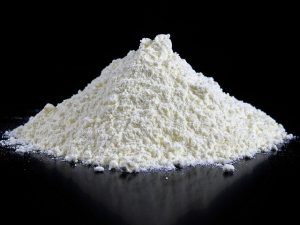 I wish I didn’t have to tell you this… but sugar is not the only sugar problem! Most people 80-90% eat too much sugar in the form of wheat and even grains. Yes, because they turn into sugar in your body! It is a bigger problem than most people realize.
I wish I didn’t have to tell you this… but sugar is not the only sugar problem! Most people 80-90% eat too much sugar in the form of wheat and even grains. Yes, because they turn into sugar in your body! It is a bigger problem than most people realize.
Too much white flour can lead to inflammation (the cause of most modern illnesses), weaken your immune system, and might just cause you to develop a sensitivity to it, as well. You are also more likely to gain weight, struggle with blood sugar (diabetes), cardiovascular disease, or even develop cancer. Also, consuming more wheat flour is really not that much better for you. You are still consuming a highly processed food.
You should actually consume most of your carbohydrates in the form of vegetables.
I love bread and pasta, so this isn’t good news for me either. I’m one of those people who really gets excited about food A.K.A. a foodie. But, I believe having some is okay. The question is how much is too much? And what are the dangers of overconsumption? I go over all these things including how to consume less in my blog: Is White Flour Bad For You? Should We Be Eating Less Carbs?
Eating Healthier Dairy
As I mentioned above, we don’t need milk. Also, eating too much cheese, isn’t great for our health (which is hard if you live in Wisconsin, I know). Then, many eat dairy that is low-fat thinking it is better, but it actually isn’t. There are many ways to eat healthier dairy and there are also alternatives for avoiding dairy altogether. Learn more in my blog: How to Choose Healthier Dairy Products & Alternatives to Dairy.
Why GMOs are Dangerous
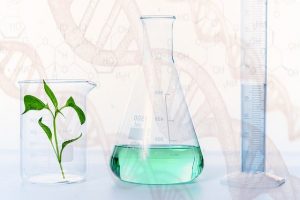 Are you familiar with GMOs? I think most people don’t know a whole lot about them. I actually had to dig deep to find the facts on GMOs.
Are you familiar with GMOs? I think most people don’t know a whole lot about them. I actually had to dig deep to find the facts on GMOs.
GMO stands for Genetically Modified Organisms, it is when the genetic makeup of a plant, animal, or organism has been modified in a way that is not natural. Approximately 80% of GMO crops across the globe have been engineered to withstand herbicides. GMOs = Not Real Food
GMOs could be a large part of the food sensitivity equation, and a plant biologist who created them, and even the FDA doesn’t consider them to be safe. Find out specifically what foods contain GMOs, the dangers, what we can do to avoid them, and eat healthier in general on my blog: Are GMOs Safe?
Eating Quality Meats Matters!
Should we buy grass-fed beef vs. grain-fed beef? Eat organic, free-range, or pasture-raised chicken? Are these just luxury food items for the people with big pocketbooks?
 In the last 70-100 years, the quality of meat we consume has drastically gone down. Animals are no longer being fed the diets they were designed to eat – that they ate for thousands of years. Instead, they are eating a lot of soy, corn, and other grains. And to make matters worse, most of the corn and soy products are GMOs. If that isn’t bad enough, many animals are given antibiotics and hormones, even in their daily feed.
In the last 70-100 years, the quality of meat we consume has drastically gone down. Animals are no longer being fed the diets they were designed to eat – that they ate for thousands of years. Instead, they are eating a lot of soy, corn, and other grains. And to make matters worse, most of the corn and soy products are GMOs. If that isn’t bad enough, many animals are given antibiotics and hormones, even in their daily feed.
Farmed-raised fish are one of the most toxic meat sources there is. Yet, fish is one of the healthiest meats we can eat. It’s a great source of protein, it’s lean, and most importantly it provides Omega 3s. Most people are Omega 3 deficient and need to consume fish oil supplements to get enough Omega 3s into their diet. I hear that from holistic doctors, nutritionists, and even chiropractors.
We are only beginning to see the impact this has on our health. Although with all the other toxins we are being exposed to, it is hard to know how big of an impact this has. But, we should definitely be paying attention to this.
To find out more about the problems with our meat, and how to make better choices view my blog on eating healthier meats and wild-caught vs farm-raised fish.
Want some Recipes?
Here are some snack ideas that are gluten-free, sugar-free, and dairy-free: 30 Clean Snacks and Desserts
Here are healthier breakfast options: Over 30+ Gluten and Dairy Free Breakfast Ideas (& Sugar-Free) and check out my 45 Unique Gluten Free Party Appetizers
How to Make Changes
Don’t overwhelm yourself by thinking that you need to have it all figured out in a week or a month. Just start cleaning out your pantry or freezer of items you know are bad right now. Then, just decide on one thing you are going to work on with each grocery store trip, and with each weekly meal plan. Substitute healthier ingredients and try new recipes.
It is up to you to decide ultimately how much or how little you are going to do to reduce toxins in your life. The key is just to have an awareness of what you are buying and consuming. Also, be aware of your successes over time moving toward a healthier lifestyle, and be proud of your accomplishments.
Download this Free Guide:
Roadmap to Eating More Real Food & Reducing Sugar Consumption
View More Healthy Eating Blogs
- 8 Tips on How to Eat Less Packaged Food (Less Junk Food)
- Reading and Decoding Food Labels & Toxic Ingredients
- 11 Superfoods for a Diet Higher in Nutrients
- Over 30+ Gluten and Dairy Free Breakfast Ideas (& Sugar-Free)
- 30 Clean Snacks and Desserts (Gluten-Free, Sugar-Free & Dairy-Free Options)
- 45 Unique Gluten Free Party Appetizers
- How to Choose Healthier Dairy Products & Alternatives to Dairy
- The Truth About Milk – Why We Don’t Need it to Stay Healthy
- Wild Caught vs Farm Raised Fish – What is the Difference? Which is Healthier?
- How to Choose Healthier Meats
- What Does Non-GMO Mean? Are GMOs Safe?
- When is Organic Really Worth it?
- Organic vs. Natural: What is the difference?
- How the Sugar Industry Tricked us for 50 Years
- Sugar Pains? Sugar – One of our Biggest Enemies!
- Guidelines & Steps to Reduce Sugar Intake
- Is White Flour Bad For You? Should We Be Eating Less Carbs?
I have a Wellness Coach Certificate, I'm an entrepreneur, an innovator, writer, and artist. My expertise includes over 7 years of marketing, research, and developing content for holistic health businesses. Plus, my own personal journey of becoming chronically sick: understanding what went wrong, and finding a way to heal and live a healthier life. I have a passion for wellness with a wealth of knowledge surrounding: wellness, flaws in healthcare, root causes for chronic illnesses, and alternative treatments.

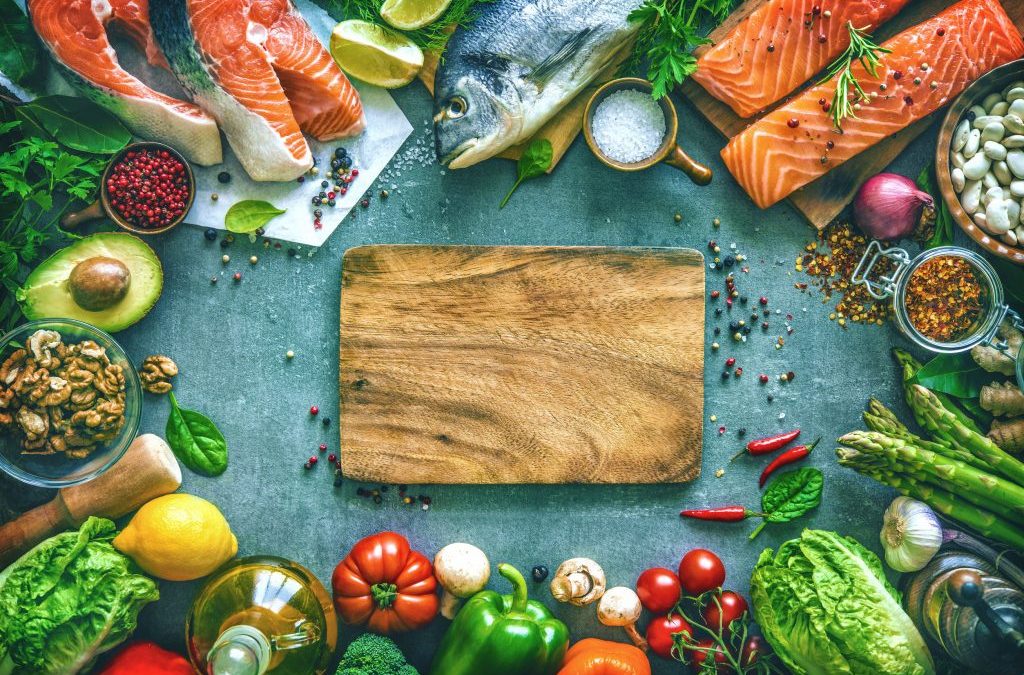
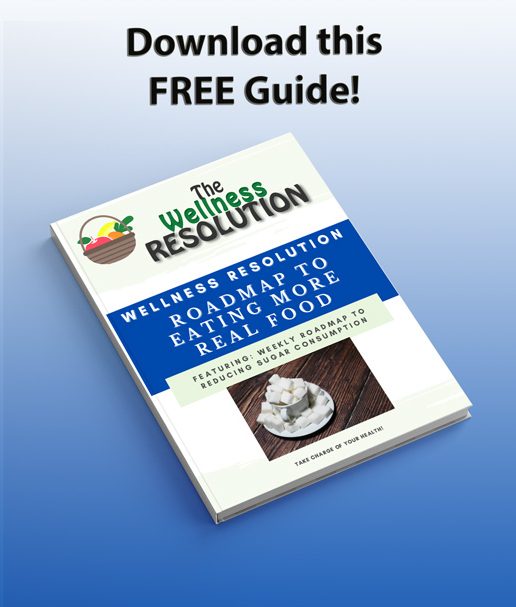

This is such an informative, interesting article. I particularly enjoyed the info on GMOs. Thank you!
I’m glad you enjoyed it, thank you for the feedback!
Wow! What a great resource! Thank you! I’ve been on a mission to reduce chemical and toxin exposure for my family for the last decade and still a work in progress. It’s overwhelming, because they’re found in nearly everything! 🙁 I love your advice to focus on one thing at a time and guage how little/how much you are going to reduce. So much truth to that! It really is such a challenge that sometimes I find myself picking my battles to preserve sanity and avoid an unhealthy obsession, and even affordability (i.e. dirty dozen/clean 15 vs. going organic on all fruits and veggies which is super expensive and not entirely necessary if you do the research). Thanks for sharing your knowledge! Pinning and following! 🙂
Thank you for your feedback. I’m glad this was helpful. Yes, it is rather easy to get overwhelmed and we can’t avoid toxins completely, but it is worth it!